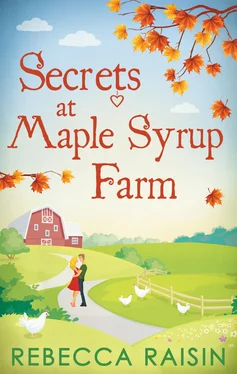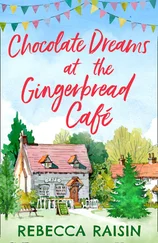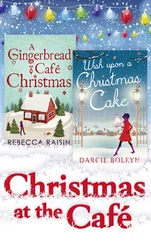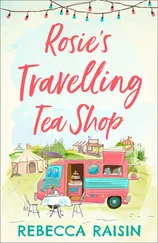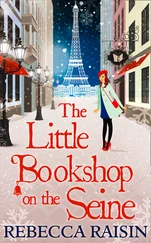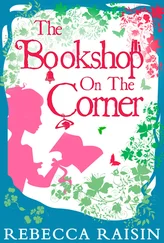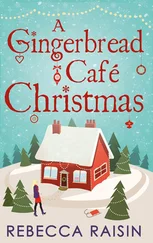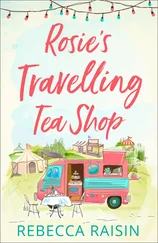“Hush,” she said. “I could stare at this all day. If I close my eyes I feel the heat from the sun, the wind in my hair…”
That’s why I’d painted the picture. She’d been suffering quietly for so many years, in and out of hospitals, unable these days to pack her oversized backpack and follow her heart around the globe. She’d been a wanderer, always looking to the next city, a new host of people, a brand new adventure…but her diagnosis had changed all of that. Even though she never complained, I could read it in her eyes—she still yearned for that freedom.
My mom, a free spirit, looked out of place in the gray-white room. She needed sunshine, laughter, the frisson of excitement as she met other like-minded souls, nomads with big hearts and simple lifestyles. The painting, I hoped, would remind her of what we’d do when she was home again. A short road trip to the beach, where I’d sketch, and she’d gaze at the ocean, watching waves roll in.
“Honey, are you working a double tonight?” she said softly, her gaze still resting on the golden rays of sun.
I had to work as many shifts as I could. Our rent was due, and the bills mounting up, just like always. There were times I had to call in sick, to help Mom. We lived paycheck to paycheck, and I was on thin ice with my boss as it was. He didn’t understand what my private life was like, and I wasn’t about to tell him! It was no one’s business but my own. I kept our struggles hidden, a tightly guarded secret, because I didn’t want pity. That kind of thing made me want to lash out so I avoided it. When I had the odd day off, I tried to make up for it by covering any shift I could. We needed the money anyhow. “No,” I lied. “Not a double. I’ll be back early tomorrow and I’ll take you out to the rose garden.”
She gazed at me, searching my face. “No, Lucy. One of the nurses can take me outside. You stay home and rest.”
I scoffed. “You know the nurses won’t take you all that way. You’ll go crazy cooped up in here.”
She tilted her head. “You think you can fool me? Not a double, huh?” She stared me down, and I squirmed under her scrutiny. “Don’t worry about me. I’ve got plenty to do here.” She waved at the table. “Sudoko, knitting, and…” Laughter burst out of us. The Sudoko and knitting needles were a gift from the lady in the bed over, who’d been discharged earlier that morning. When I’d walked in, Mom’s face had been twisted in concentration as she tried to solve the puzzle of numbers. The yarn lay on her lap, knotted, forgotten. She didn’t have the patience for that kind of thing, not these days, with her hands, her grip, unreliable at the best of times.
With a wheeze, she said, “There are not enough hours in the day to waste boggling my brain with knit two, pearl one, or whatever it is.”
I laughed. “I could use another scarf or two. Who cares if you drop a few stitches?” A million years ago Mom had taken up knitting for a month or so, producing with a flourish a bright pink sweater for me to wear to school. She’d been so damn proud of it, I hadn’t had the heart to point out all the holes from dropped stitches. She knew though, and looped a pink ribbon through them, and said, “Look, it’s all fixed with a belt.” I wore that sweater until it fell apart, knowing how much love she had poured into every stitch. It was one of her foibles, taking up a new hobby with gusto, and then dropping it when something else caught her eye. It was a sort of restlessness that plagued her, and she’d skip from one thing to another without a backward glance.
She gave me a playful shove. “I’m not the crafty one of the family, that’s for sure. That’s reserved especially for you. Would you put the painting by the window? I’m going to pretend we’re at that beach, drinking fruity cocktails, and squinting at the sunshine.”
“We’ll be there in no time,” I said, knowing we wouldn’t. It was January, rain lashed hard at the window. Detroit in this kind of weather had a gloominess about it; it cast a pall over the city, almost like a cloud of despair. It was different than other places in winter. Sadder.
I leaned the painting against the rain-drizzled glass, its colors too bright for the dreary room, but maybe that’s what she needed—a bit of vibrancy to counter the gray. The bleak city was not our first choice, but rent was cheap enough for us to afford on one wage. It pained me to think of the places we’d lived when we’d both worked. I’d loved the sun-bleached streets of Florida, and being blown sideways in the woolly weather of Chicago. Those were happier times, when we disappeared for weekend escapades. Home for me had always been where Mom was, as we squished our too-full suitcases closed, and moved from place to place.
Stepping back to the bed, I pulled the blanket up, and settled beside her, checking my watch.
“Before you head to work, I want to talk to you about something.” Her tone grew serious, and her face pinched.
“What, Mom?” I inched closer to her.
She cleared her throat, and gave me a hard stare. “I want you to make me a promise.” She held up her pinkie finger.
“OK,” I said warily. I’d promise my mom anything, she was the light in my life, but I sensed somehow this was going to be different. I could tell by her expression, the way she pursed her mouth, and set her shoulders. The air grew heavy.
“I mean it. You have to promise me you’ll do as I ask, and not question me.” Her lip wobbled ever so slightly.
I took a shaky breath as my mind whirled with worry. “What, Mom? You’re scaring me.” It was bad news. I was sure of it.
She shook her head, and smiled. “I know you, Lucy, and I know you’re going to struggle with this, but it’s important to me, and you have to do it, no matter what your heart tells you.”
“I don’t like the sound of this.” I stood up, folding my arms, almost to protect myself from what she might say. I stared deeply into her eyes, looking for a sign, hoping against hope it wasn’t something that would hurt.
“Trust me.” Her face split into a grin. “I want you to take one year for yourself. To travel…” She held up a hand when I went to interrupt. “Hush, hear me out. Tell your boss tonight—you won’t be coming back. Then go home and pack a bag, go to the station, and get on the first bus you see. The very first, you hear me? Let fate decide. Find a job, any job, save as much money as you can. I thought you might apply for that scholarship you’ve dreamed about at the Van Gogh Institute. You can stay with Adele in Montmartre. She’s excited by the prospect.”
Shock made me gasp. Take a year for myself ? The Van Gogh Institute? I couldn’t think. I couldn’t catch my breath.
There was no way. But all I could manage to say was: “You spoke to Adele about this?” Adele was my art teacher back in high school. We’d kept in touch all these years. She was a mentor to me, and the best painter I knew. I’d left school at just fifteen, and only Adele knew the reasons behind my hasty exit. I hadn’t been there long enough to make real friendships. She continued to teach me art on Saturday mornings, cooped up in our tiny apartment. I don’t know if she saw something in my work or felt just plain sorry for me.
For years she arrived punctually every weekend, until a friend offered her a spot in her gallery in Paris. Saying goodbye to her had been heart-wrenching, but we kept in contact. She badgered me to share my work, and I sidestepped her gentle nudging by asking her about Paris.
“Adele’s all for it,” Mom said. “And before you go saying no, she agrees you should apply for the scholarship. It’s time, Lucy. Your work is good enough. You just have to believe in yourself.”
Читать дальше
